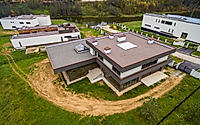How Much Does a Land Survey Cost? Understanding the Fees and Factors
When it comes to buying land or planning a construction project, one of the first steps is often a land survey. A land survey ensures you know the boundaries of the property, the topography, and any potential issues that could arise during construction. But how much does a land survey cost? The price can vary based on several factors, from the size of the land to its location. In this article, we’ll break down what goes into the cost of a land survey and what you can expect to pay.
What is a Land Survey?
Before diving into costs, it’s essential to understand what a land survey is. A land survey is an examination of a piece of land that includes measuring its boundaries and identifying key features like elevation, structures, and easements. Surveyors also check zoning regulations and land use to ensure everything is in line with legal requirements.
There are several types of land surveys, such as:
- Boundary Survey: Defines property lines.
- Topographic Survey: Maps out the terrain, including slopes and elevation.
- Construction Survey: Provides guidelines for building structures on the property.
- ALTA/NSPS Land Title Survey: Used for legal and financial purposes.
Each type of survey comes with its own cost depending on its complexity and purpose.
Factors That Affect Land Survey Cost
Now that you understand what a land survey is, let’s look at the factors that affect the land survey cost.
1. Size of the Property
One of the most significant factors influencing the cost of a land survey is the size of the property. Larger plots of land take more time and resources to measure accurately. For example, surveying a small residential lot will typically cost less than surveying a large farm or commercial land.
2. Location of the Land
The location of the property also plays a significant role in determining the survey cost. In more urban or densely populated areas, surveyors may charge higher rates due to increased demand and higher operational costs. Land development services in Orlando, Jacksonville, and other cities in Florida might carry a different price range than rural or less-developed areas due to factors like accessibility and local regulations.
3. Type of Survey
As mentioned earlier, different types of surveys are required for different purposes. A boundary survey might be cheaper than a topographic survey, which involves more complex data collection and mapping. A more detailed ALTA survey will typically cost more because it includes additional legal and financial information.
4. Terrain and Accessibility
The terrain and accessibility of the land also affect the cost. If the land is heavily wooded, hilly, or difficult to access, it can take surveyors longer to complete the work, increasing the cost. Similarly, properties in remote or hard-to-reach areas may require special equipment or more time to survey.
5. Legal and Zoning Considerations
In some cases, a land survey may need to address legal or zoning issues, such as determining if the property meets zoning codes or if there are any encroachments from neighboring properties. These additional steps can raise the price of the survey.
Average Land Survey Costs
Now that you know the key factors that affect the cost of a land survey, let’s look at some average price ranges. The cost can vary depending on the above factors, but here’s a general idea:
- Small Residential Property: $300 – $800
- Large Residential Property or Subdivision: $800 – $2,000
- Commercial Property: $2,000 – $5,000+
- ALTA/NSPS Land Title Survey: $1,000 – $3,000+
Remember, these are average estimates. For a more accurate quote, you’ll need to contact local surveyors in your area. Surveying fees can also vary depending on your location, with urban areas generally charging higher prices than rural ones.
How to Save Money on a Land Survey
While it’s important to hire a qualified surveyor to ensure accuracy, there are a few ways you can potentially reduce the cost of a land survey:
1. Get Multiple Quotes
Different surveyors have different rates, so it’s a good idea to get multiple quotes. Be sure to provide as much information as possible about the property so surveyors can give you an accurate estimate.
2. Combine Surveys
If you need multiple surveys (such as a boundary survey and a topographic survey), see if you can combine them. Some surveyors offer discounts if you order more than one service at a time.
3. Plan Ahead
Land surveys can take time, so plan ahead and schedule the survey well in advance of any construction or property transactions. Last-minute requests may cost more.
4. Ask About Bundling Services
Some land surveyors also offer land development services in Orlando, Jacksonville, and other cities in Florida. Bundling these services together might save you money in the long run.
Why a Land Survey is Worth the Investment
While it may seem like an unnecessary expense at first, a land survey is a smart investment. A survey helps you avoid potential legal disputes, property boundary issues, and costly mistakes in construction. It provides peace of mind that you are fully informed about the land you’re buying or developing.
Remember, buying a property is a commitment. Be prepared that it can be time-consuming and requires your total focus and, of course, the finance. With a professional land survey, you ensure that your property investment is based on accurate, reliable data, setting the stage for successful development or construction projects.
- by Matt Watts




